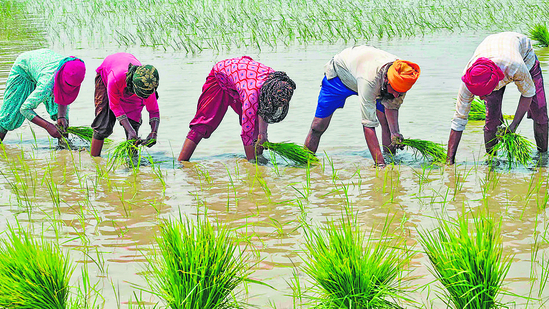QUICKREADS

A change that’s quietly taking root
India's National Education Policy 2020 is sparking a quiet education revolution, transforming classrooms through foundational learning initiatives. States are upgrading schools, leveraging technology, and empowering teachers, with early signs of improved literacy and potential economic impact.

Challenges of communicating public health information
India's linguistic diversity challenges public health communication, with many official health announcements poorly translated or unavailable in regional languages. This leads to misinformation, reduced health compliance, and inequitable access to critical health information across diverse communities.

Using rural primary health care for cancer prevention
Rural primary health care can transform cancer prevention by integrating early detection, education, and technology. Mobile screening camps, AI-powered diagnostics, and trained community workers are bridging healthcare gaps, enabling timely interventions and potentially saving lives in underserved regions.

India rides the WAVES: Next chapter of the global media story
India's media and entertainment sector is evolving with interactive, AI-driven storytelling. WAVES 2025 highlights mobile-first content, regional language engagement, and global collaborations. The industry is projected to reach $73 billion by 2027, driven by digital innovation and participatory experiences.

Waste to wonder: Why redeveloping landfills is worth doing
Landfills worldwide are being transformed into vibrant parks, industrial zones, and urban spaces. Examples like Fresh Kills, Jurong Island, and Mount Trashmore showcase innovative land reclamation, turning waste sites into sustainable, functional areas through careful engineering and environmental strategies.

Impact of financial inclusion on emissions in India
Financial inclusion in India shows complex effects on carbon emissions. Research from 1990-2018 reveals interconnections between financial systems and environmental outcomes, highlighting the potential for sustainable development through strategic capital allocation.

UK-India collaboration for a sustainable future
The UK and India are collaborating to drive sustainable development, focusing on renewable energy, climate action, and socio-economic progress. Both countries aim to achieve net-zero emissions, foster innovation, and create inclusive economic growth through public-private partnerships.

Why non-profits must embrace analytics
Non-profits are increasingly adopting data analytics to enhance decision-making, optimize resources, and showcase impact. Advanced technologies like AI help track effectiveness, understand trends, and improve strategies across fundraising, employment, and program development.

Unleashing India’s gender dividend: Dismantling demand-side barriers
India's economic growth hinges on unleashing women's potential. Despite improved labor force participation, demand-side barriers persist. Addressing workplace flexibility, bias, and career progression can unlock 196 million employable women, significantly boosting national GDP and economic development.

Not every chest pain is a heart attack
Aortic dissection, a rare but deadly condition, mimics heart attack symptoms. Characterized by sudden severe chest pain, it can lead to internal bleeding, stroke, or death. Primarily affecting older men, it requires immediate medical attention and lifelong management.

Carbon-neutral strategies will determine market leadership
India aims to balance rapid development with carbon neutrality by 2070, transforming industries through innovative, sustainable practices. Companies adopting cleaner technologies, ESG principles, and climate-resilient strategies will lead the market, turning environmental challenges into competitive opportunities.

How AI startups are redefining Indian health care
AI startups are transforming Indian healthcare by offering innovative solutions like intelligent diagnostics, telemedicine, and patient management. Government support and digital initiatives are enabling AI-powered technologies to bridge rural-urban healthcare gaps and improve accessibility.

Redefining philanthropy in India: Catalysing systemic change
India faces a dual challenge of economic growth and persistent poverty. Philanthropy must shift from short-term project funding to flexible, long-term capital investment, using innovative financing models to address systemic challenges and drive sustainable social change across critical sectors.

Indian agriculture’s response to global warming
India's agriculture faces severe climate challenges, with 310 districts highly vulnerable. Government initiatives like NAPCC, NMSA, and NICRA are developing climate-resilient crop varieties, implementing insurance schemes, and supporting agri-startups to enhance adaptation and resilience in the agricultural sector.

Pensiontech: How AI, blockchain and automation are redefining user experience
AI, blockchain, and automation are revolutionizing pensions and insurance, shifting from legacy systems to data-driven, customer-centric experiences. Technologies like AI and blockchain promise improved efficiency, personalization, and trust in financial services.

Breaking gender bias in the age of AI
AI's gender gap threatens technological innovation. Only 22% of AI employees are women, leading to biased systems. Empowering women through education, mentorship, and inclusive policies is crucial for equitable AI development and future opportunities.






